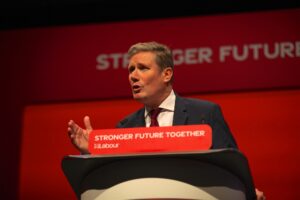 An obscure government consultation may hold the key to advancing true localism, says Roy Payne
An obscure government consultation may hold the key to advancing true localism, says Roy Payne
Odd as it may sound, but nuclear waste management policy could be a vehicle for turning recommendations of the Commission on the Future of Localism into reality, by supporting the creation of a radical new democratic model that empowers communities to shape their own future.
Parallels between the Commission on the future of localism and the government’s recent report on working with communities to implement geological disposal are not immediately obvious. That’s not surprising: they may have been published in the same week, but the two documents come from very different worlds. However, take a closer look, and if you try to ‘translate’ the geological disposal report into the language of localism, it becomes clearer that while the documents started in different places, they’ve arrived at very similar destinations.
Vidhya Alakeson, chief executive of Power to Change recently said, ‘localism should enable local solutions through partnership and collaboration around place.’ while Locality chief executive Tony Armstrong said, ‘power starts with people. It lies in our communities. The task of the political system and our local leaders is to harness this power through ongoing relationships, engagement and co-creation.’ These sentiments, though articulated differently in the government’s proposals for disposing of geological waste, are central to its proposals.
They are central because government needs a community’s ‘consent’ in order to construct the waste repository. It cannot simply just impose a solution, it needs to negotiate. Previous attempts to find a consenting community have foundered on the flaws of local authority and short-term decision-making. So government has been fundamentally reassessing what it needs to do to gain a community’s ‘consent’. They’ve reached a radical conclusion: you need to work collaboratively in equal partnership with the community, in a process that works alongside of, but is independent from, local authority governance.
The proposals may have accidentally stumbled into a re-imagining of localism, but they certainly give substance to what Lord Bob Kerslake calls ‘the four domains of localism’: institutions, powers, relationships, and community capacity.
Institutionally, the consultation document proposes that the key decision-making body would be a ‘community partnership’. Membership, roles, responsibilities, powers, and dispute resolution would be set out in a ‘community agreement’. Negotiations for this agreement would necessarily involve discussing a re-balanced relationship between local authorities and the affected community. The agreement would also set out how the wider community engaged and participated in the decision-making process.
More importantly, the proposals recognise the critical requirement to build community capacity. Community participation and engagement costs would be borne by government, with the community able to fashion how their capacity needs were met. And there would be ‘significant’ additional short and long-term funding to help the community invest in and realise its ambitions.
The reasons why a waste repository may never be built in a particular community are legion. It might be decades before a final decision could even be made. But during those years, the ‘Working with Communities’ proposals, if implemented, could be used as a ‘localism laboratory’, testing ideas and learning lessons that could be applied more widely, to create case studies that showcase the effectiveness of localism.
Much depends now on whether the community sector has the capacity to assess this unexpected opportunity. From a localism perspective, the Working with Communities proposals are ‘raw’ and do need informed shaping while they’re still out for consultation. Support in interpreting and implementing the proposals would also be welcome, especially by those communities already with an interest in entering the process. Those that do become involved will need the counsel and support of the wider community sector, to help protect and promote their interests as the terms of this new and unique community partnership model are bartered and rolled-out. The subsequent experience of operating the process would also help inform and advance the wider localism agenda in very practical ways.
The Commission on the Future of Localism concluded that ‘we need radical action to strengthen our local institutions; devolve tangible power resources and control to communities; ensure equality in community participation; and deliver change in local government behaviour and practice to enable local initiatives to thrive.’ Reading through the Working with Communities proposals with a localism lens, you can begin to see the possibility of achieving those objectives.
The commission observed that until the Brexit furore settles down, there is little expectation of the localism agenda being advanced. In the absence of any immediate alternatives, these proposals may merit a look.
If you want to find out more about the Working with Communities proposals, open public workshops are being held around the country in March. These may be a helpful starting point for considering how the proposals can be developed. Even if we don’t ultimately solve our nuclear waste problem, on the journey there we might still create a Localism Legacy.
- More info here.

















Leave a Reply